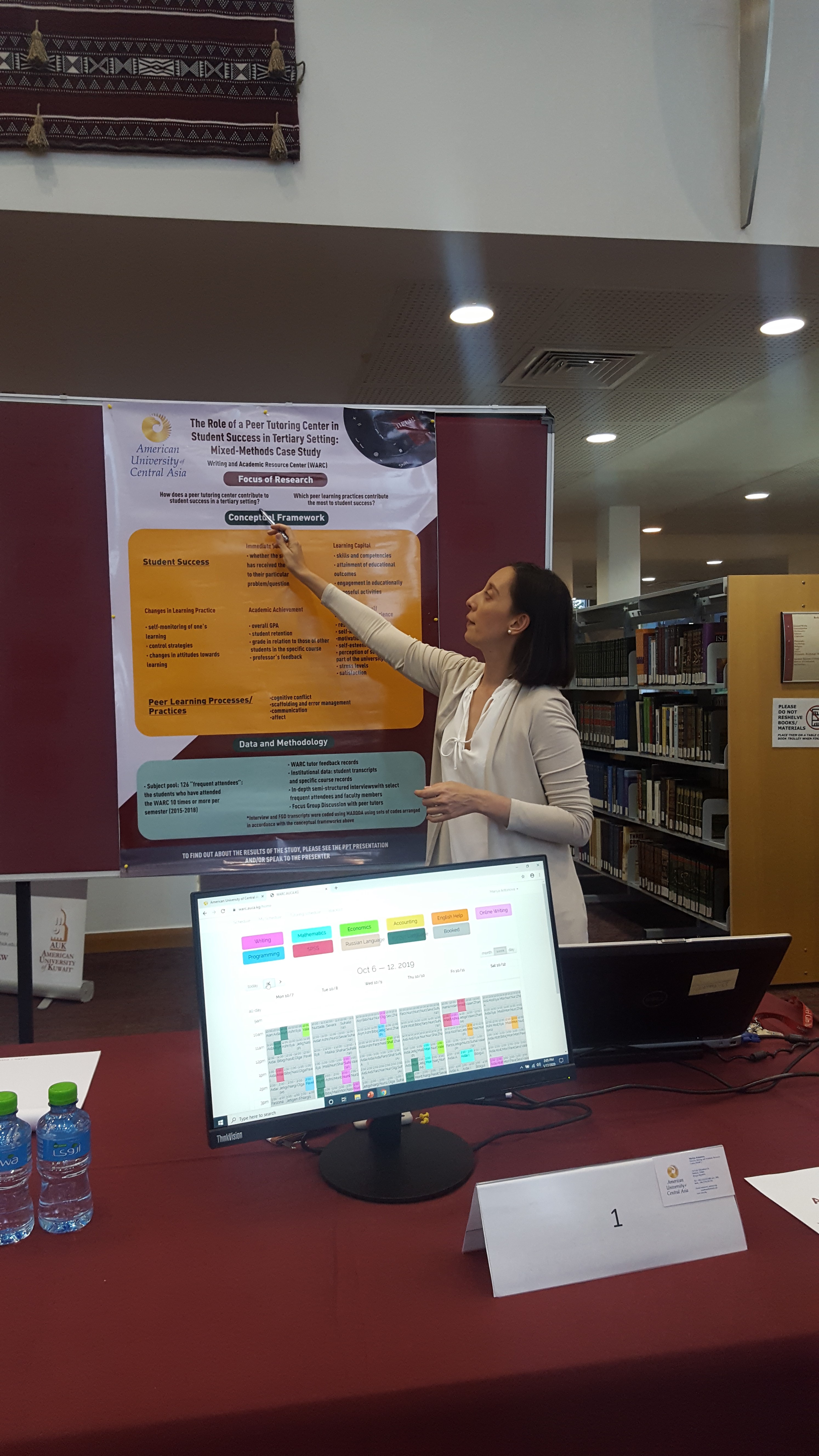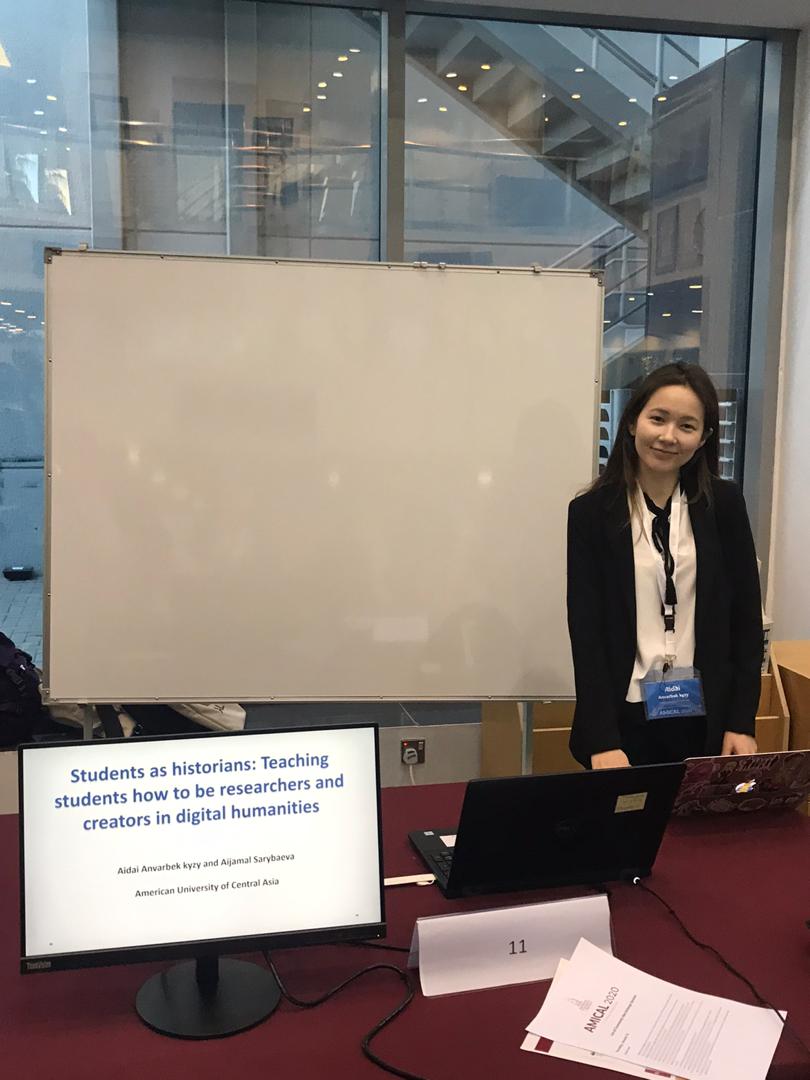January 23, 2020
Two members of the WARC were selected to present at a conference held by the American International Consortium of Academic Libraries. The conference, held at the American University of Kuwait from January 15th to 18th, was devoted to the topic of digital technology’s applications at liberal arts institutions.
WARC Director Mariya Antonova’s presentation, "Assessing the Role of Academic Support Services in Student Success," drew from data she had gathered at ż�۹��ʴ�ý. “What I really wanted to know was how exactly a learning support center such as the WARC contributes to student success (and whether it does it at all), and which tutoring tools are the most effective in this mission,” she explained. Her study found a correlation between frequent WARC attendance (10+ times per semester) and higher GPA, self-esteem, and educational satisfaction, as well as lower stress levels. In other words, Mariya said, “While the WARC succeeds in its mission of raising student grades, its greatest contribution may lie in the variety of cognitive and psychological benefits that it provides to the students.” The presentation received a warm reception from colleagues hailing from academic support centers across the world.

Aidai Anvarbek kyzy, a junior in Business Administration and a writing tutor at the WARC, was also invited to present at AMICAL. She had assisted with an oral history project led by Profs. Aijamal Sarybaeva and Daniyar Karabaev that sought to gather accounts of life under Stalin from people living in the Issyk-kul region. In Kuwait, Aidai co-led a session about the role of students in digital humanities research, highlighting her work with the oral history project as a successful example.

This was Aidai’s first time at an academic conference, and she encourages other ż�۹��ʴ�ý students to seek out opportunities to attend or present at such events. She felt that the project offered a richer and more textured understanding of historical events than her textbooks had. “When you talk one on one and try to listen to the stories, their words are surprising because they talk really emotionally,” she said. “They can share really private stories of what they were eating or how they were collecting wheat, for example.” Discussing the importance of student involvement in projects such as this one, Aidai recalled the words of one of the elderly women she interviewed: “‘This is for the living, this is for the future generations.’”